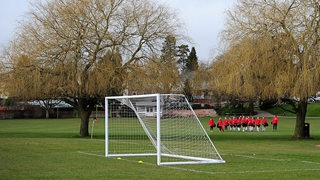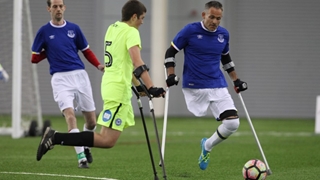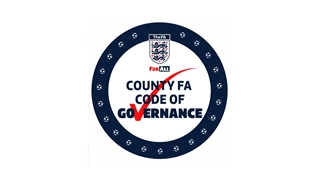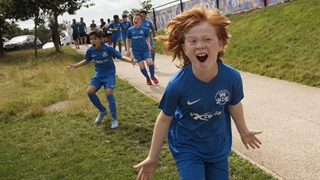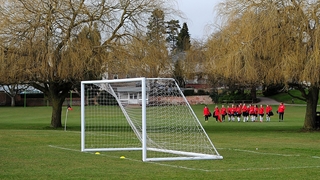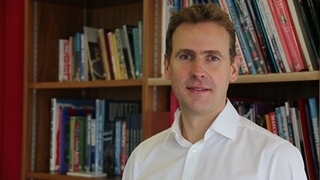
When I first joined the FA 18 months ago to take on responsibility for the grassroots game, it was a wonderful moment both personally and professionally.
Growing up, I played football all the way through school, and then I played league football throughout my 20s before injury took over.
My boys – I have two sons and two daughters – play regular football too and love it. In recent years, I’ve been back playing for my youngest son’s dad’s team against other local schools which has been a lot of fun.
But the reason I took the role was because of a shared passion for the significant impact that grassroots football can have on society and an ambition to give it even greater prominence at the FA.
When I think back to before I joined the FA and ask myself what I thought needed improving in grassroots football, it was always the quality of pitches. Anyone who has played grassroots football will know what I mean – there are some really poor pitches but also some excellent ones which we all know make such a difference to a game.
Also, the ability to easily find playing opportunities, particularly outside a club, is another area I’ve experienced some frustration personally.
But it’s the positive side of the game that is my real inspiration, knowing what a hugely beneficial sport football is.
My more recent background before I joined the FA was heavily focused on the participation side of sport, working extensively with governing bodies and organisations around the world.
I saw the significant benefits of sport and physical activity first-hand, whether it was in a developed or developing nation – the impact it can have on people and communities is second to none.
Because of the scale of football, the impact it can have on society is unique which is tremendously exciting.
Our country has gone through its most traumatic period since the Second World War and the social needs across the country are greater than ever.
Football has a massive role to play in helping the nation back to its feet by bringing communities together and improving mental and physical health. With this comes a responsibility which I take very seriously.
Additionally, we must react to significant societal trends that have accelerated as a result of the pandemic. For example, changing lifestyles that need more flexibility, the power of digital and addressing social inequalities.
That’s why announcing our new grassroots strategy as sport can safely return is so significant.
We’ve entitled our strategy ‘Survive. Revive. Thrive’ because that’s exactly the journey we want to go on over the next four years and the challenge we want to respond to.
Our plan has the needs of players at its heart and will focus on the areas of the game that our insight tells us will have the most impact.
Ultimately, grassroots football is a game for everyone – young, old and those with a disability – and we want the game to be played in a positive and safe environment.
Our strategy is deliberately ambitious but is eminently achievable with the FA’s wholehearted commitment and our extended team of 50 County FAs across the country.
Over the past few months, it’s been terrible to see the empty fields and kids, including my own, not being able to play.
So, today is a really good day and it’s wonderful that football is back.


